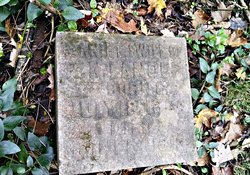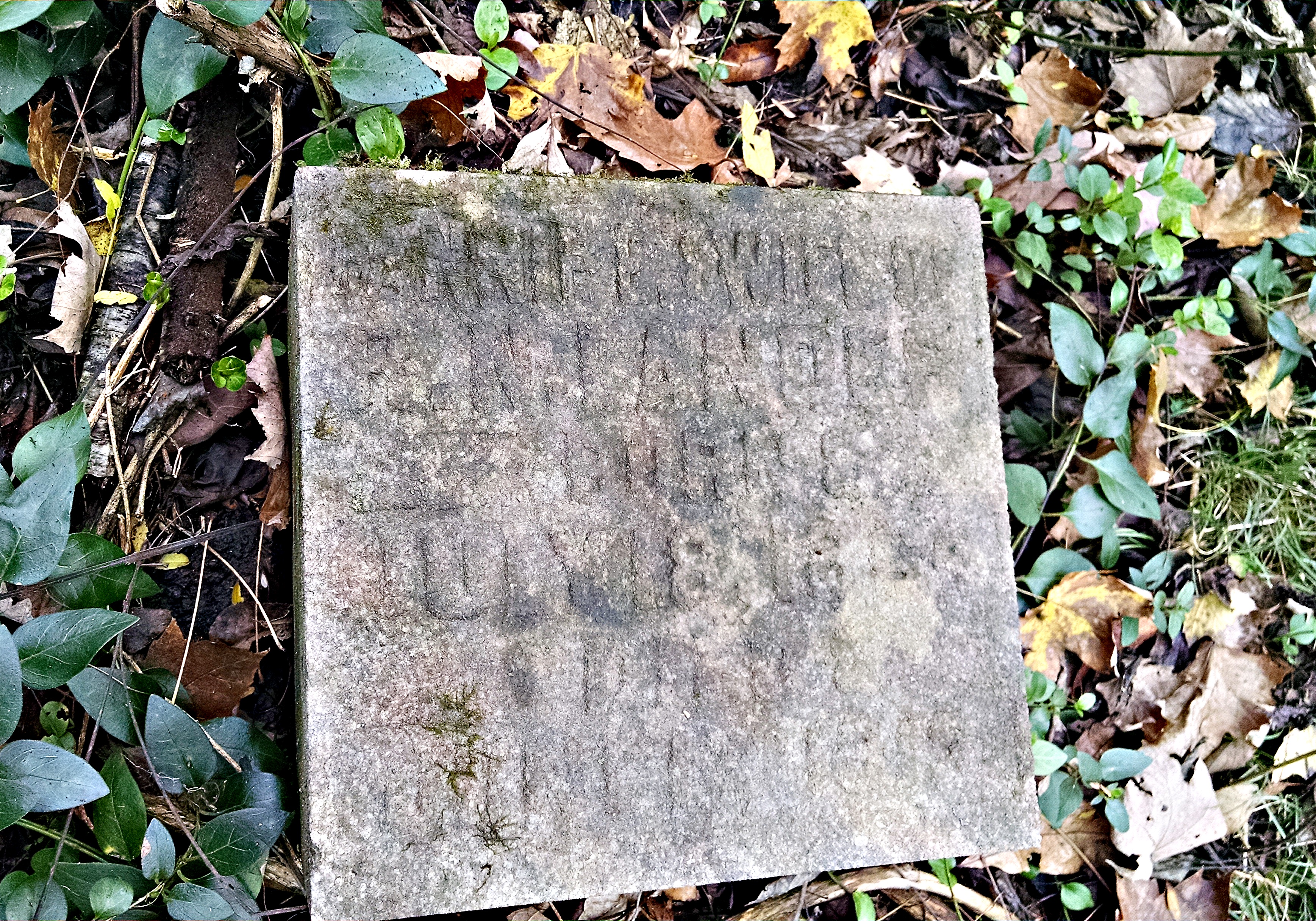----------------
The following article appeared in the
Kentucky New Era, March 16, 2016 (used by permission)
Headline:
Before Rosa Parks there was Fannie Lander
Hopkinsville woman put railroad injustice to test
Fifty-seven years before Rosa Parks helped launch the Montgomery Bus Boycott by refusing to give up her seat to a white passenger on a municipal bus, there was another African-American woman — a resident of Hopkinsville — who challenged racist restrictions in public accommodations. She was Fannie E. Lander, and her story involves one of the South's earliest court cases of black resistance to the South's web of segregation laws.
Lander's act of defiance is not as widely known today as Parks' story, but it is an important part of our community's history, and it has a place among many episodes involving efforts to throw out Jim Crow laws.
People like Lander laid the groundwork for Parks and others involved in the bus boycott, which was huge in winning support for the federal Civil Rights Act in 1964.
Lander was fighting the railroad. In 1898, she and her husband, Robert, who was a Hopkinsville attorney, sued the Ohio Valley Railway in a Christian County court. Her husband had purchased a first-class ticket for her to ride from Hopkinsville to Mayfield, but she was eventually forced to leave the car commonly known as the "ladies coach" because she was black.
According to court records, Fannie Lander argued that the car for black passengers was inferior to the "ladies coach."
Lander first refused a conductor's request that she move to the black car. Typically in those days, black passengers rode in a section of the car directly behind the baggage car, which was behind the engine, and that was significant. Cars closer to the engine were less comfortable. The car for black passengers was also called the "smoker" because a portion of it was reserved for white passengers using tobacco.
When Lander refused to leave her seat in the more comfortable car, the conductor returned to her with three more railroad employees. She felt she didn't have any choice but to move.
In her court case, Lander said some passengers in the "smoker" were engaged in "practices offensive to ladies and children," and that was one of the reasons she had paid for better accommodations.
A Christian County jury ruled in Lander's favor and awarded her $125. She was seeking $10,000 in damages.
The railroad company appealed, and the case eventually went to the U.S. Supreme Court. Lander lost when the court upheld Kentucky's 1892 law establishing separate railway coaches for black and white passengers.
Two years before Landers sued the railroad, the Supreme Court had ruled 7-1 in Plessy v. Ferguson, the case that established "separate but equal" accommodations as legal. A Kentuckian on the court, Justice John Marshall Harlan, was the lone dissenter. He wrote, "We boast of the freedom enjoyed by our people above all other peoples. But it is difficult to reconcile that boast with a state of the law which, practically, puts the brand of servitude and degradation upon a large class of our fellow citizens, our equals before the law. The thin disguise of 'equal' accommodations for passengers in railroad coaches will not mislead anyone, nor atone for the wrong this day done."
Plessy v. Ferguson was not taken down until 1954 with the Supreme Court's decision in Brown v. Board of Education, which established that separate is not equal.
In 1914, around the time Booker T. Washington was planning a national protest of "Railroad Days" to highlight the indignity of separate coaches for black passengers, eight indictments were issued in a Christian County court against three railroad companies — the Louisville and Nashville, Illinois Central and Tennessee Central — for discriminating against black passengers. This case is detailed in Jack Glazier's book on race, "Been Coming Through Some Hard Times: Race, History and Memory in Western Kentucky."
Lander did not live to see that development. She died in 1913. She is buried in the Union Benevolent Society Cemetery on Vine Street, which has been undergoing a major cleanup effort. But knowing her story today is a meaningful way to celebrate Women's History Month.
JENNIFER P. BROWN is the New Era's opinion editor.
-----------------
The website below cites the historic court case of "Ohio Valley Railway vs Lander" in which Robert and Fannie Lander sue the railroad for refusing to honor a properly purchased first class ticket.
https://books.google.com/books?id=acEGAAAAYAAJ&pg=PA432&lpg=PA432&dq=fannie+lander+hopkinsville+ky&source=bl&ots=Al53PtTbGd&sig=7zqhNtVU3O_NzAc_FbiRc3vUFqE&hl=en&sa=X&ved=0ahUKEwjU3rza_oHLAhXEPD4KHbeTDXgQ6AEINjAG#v=onepage&q=fannie%20lander%20hopkinsville%20ky&f=false
----------------
The following article appeared in the
Kentucky New Era, March 16, 2016 (used by permission)
Headline:
Before Rosa Parks there was Fannie Lander
Hopkinsville woman put railroad injustice to test
Fifty-seven years before Rosa Parks helped launch the Montgomery Bus Boycott by refusing to give up her seat to a white passenger on a municipal bus, there was another African-American woman — a resident of Hopkinsville — who challenged racist restrictions in public accommodations. She was Fannie E. Lander, and her story involves one of the South's earliest court cases of black resistance to the South's web of segregation laws.
Lander's act of defiance is not as widely known today as Parks' story, but it is an important part of our community's history, and it has a place among many episodes involving efforts to throw out Jim Crow laws.
People like Lander laid the groundwork for Parks and others involved in the bus boycott, which was huge in winning support for the federal Civil Rights Act in 1964.
Lander was fighting the railroad. In 1898, she and her husband, Robert, who was a Hopkinsville attorney, sued the Ohio Valley Railway in a Christian County court. Her husband had purchased a first-class ticket for her to ride from Hopkinsville to Mayfield, but she was eventually forced to leave the car commonly known as the "ladies coach" because she was black.
According to court records, Fannie Lander argued that the car for black passengers was inferior to the "ladies coach."
Lander first refused a conductor's request that she move to the black car. Typically in those days, black passengers rode in a section of the car directly behind the baggage car, which was behind the engine, and that was significant. Cars closer to the engine were less comfortable. The car for black passengers was also called the "smoker" because a portion of it was reserved for white passengers using tobacco.
When Lander refused to leave her seat in the more comfortable car, the conductor returned to her with three more railroad employees. She felt she didn't have any choice but to move.
In her court case, Lander said some passengers in the "smoker" were engaged in "practices offensive to ladies and children," and that was one of the reasons she had paid for better accommodations.
A Christian County jury ruled in Lander's favor and awarded her $125. She was seeking $10,000 in damages.
The railroad company appealed, and the case eventually went to the U.S. Supreme Court. Lander lost when the court upheld Kentucky's 1892 law establishing separate railway coaches for black and white passengers.
Two years before Landers sued the railroad, the Supreme Court had ruled 7-1 in Plessy v. Ferguson, the case that established "separate but equal" accommodations as legal. A Kentuckian on the court, Justice John Marshall Harlan, was the lone dissenter. He wrote, "We boast of the freedom enjoyed by our people above all other peoples. But it is difficult to reconcile that boast with a state of the law which, practically, puts the brand of servitude and degradation upon a large class of our fellow citizens, our equals before the law. The thin disguise of 'equal' accommodations for passengers in railroad coaches will not mislead anyone, nor atone for the wrong this day done."
Plessy v. Ferguson was not taken down until 1954 with the Supreme Court's decision in Brown v. Board of Education, which established that separate is not equal.
In 1914, around the time Booker T. Washington was planning a national protest of "Railroad Days" to highlight the indignity of separate coaches for black passengers, eight indictments were issued in a Christian County court against three railroad companies — the Louisville and Nashville, Illinois Central and Tennessee Central — for discriminating against black passengers. This case is detailed in Jack Glazier's book on race, "Been Coming Through Some Hard Times: Race, History and Memory in Western Kentucky."
Lander did not live to see that development. She died in 1913. She is buried in the Union Benevolent Society Cemetery on Vine Street, which has been undergoing a major cleanup effort. But knowing her story today is a meaningful way to celebrate Women's History Month.
JENNIFER P. BROWN is the New Era's opinion editor.
-----------------
The website below cites the historic court case of "Ohio Valley Railway vs Lander" in which Robert and Fannie Lander sue the railroad for refusing to honor a properly purchased first class ticket.
https://books.google.com/books?id=acEGAAAAYAAJ&pg=PA432&lpg=PA432&dq=fannie+lander+hopkinsville+ky&source=bl&ots=Al53PtTbGd&sig=7zqhNtVU3O_NzAc_FbiRc3vUFqE&hl=en&sa=X&ved=0ahUKEwjU3rza_oHLAhXEPD4KHbeTDXgQ6AEINjAG#v=onepage&q=fannie%20lander%20hopkinsville%20ky&f=false
Inscription
Wife of R.N. Lander
Gravesite Details
Daughter of H.C. & Bettie Clardy Oldham
Family Members
Sponsored by Ancestry
Advertisement
Advertisement




